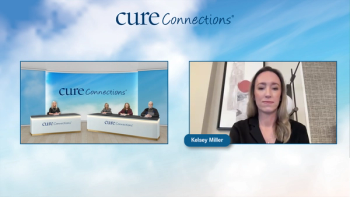
Treatment Selection for the Management of RCC
Thomas E. Hutson, DO, PharmD, discusses his approach to determining the optimal initial therapy for a patient with RCC.
Episodes in this series

Thomas E. Hutson, D.O., Pharm.D.: The choice of therapy for an individual patient is a task that the doctor undergoes using the most recent clinical evidence from research studies, the unique information provided by that individual patient’s tumor, and also some of the clinical factors of the patient. We know that each of us is an individual, and as such, each of our cancers are individual. Thus, based upon the unique characteristics of the patient and the cancer, this knowledge would allow the doctor to appropriately select from a list of available therapies. In 2021, we have a general idea of what are the most powerful or best therapies to initiate in patients. There are 3 or 4 types of therapy that we would consider giving first, and again, the goal of therapy is quite clear for all patients, which is to extend life with the best quality of life and the least amount of side effects. Right now, there are 3 main therapy types that we would consider using as initial therapy. One therapy type is a combination of two immune therapies, or checkpoint inhibitors. It is abbreviated ipi/nivo [ipilimumab plus nivolumab], and it is an intravenous therapy, which is given on a schedule every 2 to 4 weeks. The other, second therapy is a combination of 1 immune therapy with 1 oral VEGF [vascular endothelial growth factor] inhibitor. The oral VEGF inhibitor would be given daily, and the patient would take that on their own at home, and the intravenous therapy would be given generally on a schedule every two to four weeks.
One treatment strategy is to combine two immune therapies in hopes that the combination will be at least additive in the ability to produce tumor shrinkage. The rationale to do that is based upon our understanding of the immune system. The one therapy is a checkpoint inhibitor, of which there are several available. The one that we use in kidney cancer in combination with immune therapy is a drug called Opdivo, or nivolumab. It is an antibody that goes in and prevents the negative interaction between the cancer and the immune system that allows the immune system to turn on, and subsequently, what we hope, recognize and fight the cancer. That therapy is combined with another immune therapy called a CTLA-4 [cytotoxic T-lymphocyte–associated protein 4] antibody, and it is called ipi, or ipilimumab. That therapy is specifically designed to help stimulate the production and spread of particular types of immune cells that are important in fighting cancer. Thus, the rationale is to increase, if you will, the supply of white blood cells to the tumor, increase the production of them and supply, and then allow them to be turned on. That strategy of doing both of those has been shown to be effective and provide a benefit over each of them alone. The first cancer that that was shown to be beneficial in was melanoma, and now that combination has been shown effective in kidney cancer, as well as several other types of cancer.
This transcript has been edited for clarity.


